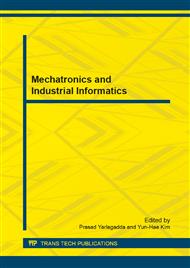p.2249
p.2254
p.2260
p.2265
p.2269
p.2274
p.2282
p.2286
p.2291
Personalization Information Retrieval Based on Unigram Language Model
Abstract:
Personalization information retrieval is very useful in information retrieval system, the user profile can be used to represent the favorites or interests of user. Many methods to personalization have been studied in extending query with user profile. A proposed navel method which use the context of long-term user profile with multiple domain to extend query model under the unigram language model framework, uses the new query model to retrieve and get more interesting results for users. Combined with psudo relevance feedback model, the proposed method get better performance. Experimental results show that the proposed method in this paper is effective.
Info:
Periodical:
Pages:
2269-2273
Citation:
Online since:
June 2013
Authors:
Price:
Сopyright:
© 2013 Trans Tech Publications Ltd. All Rights Reserved
Share:
Citation:


